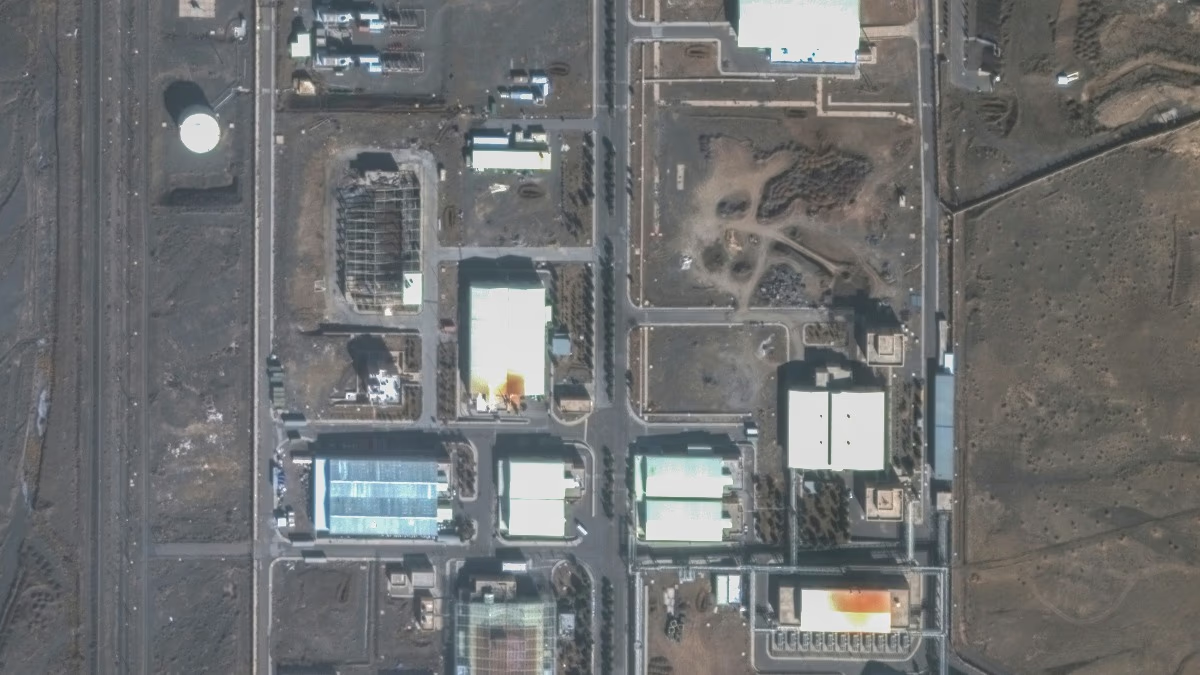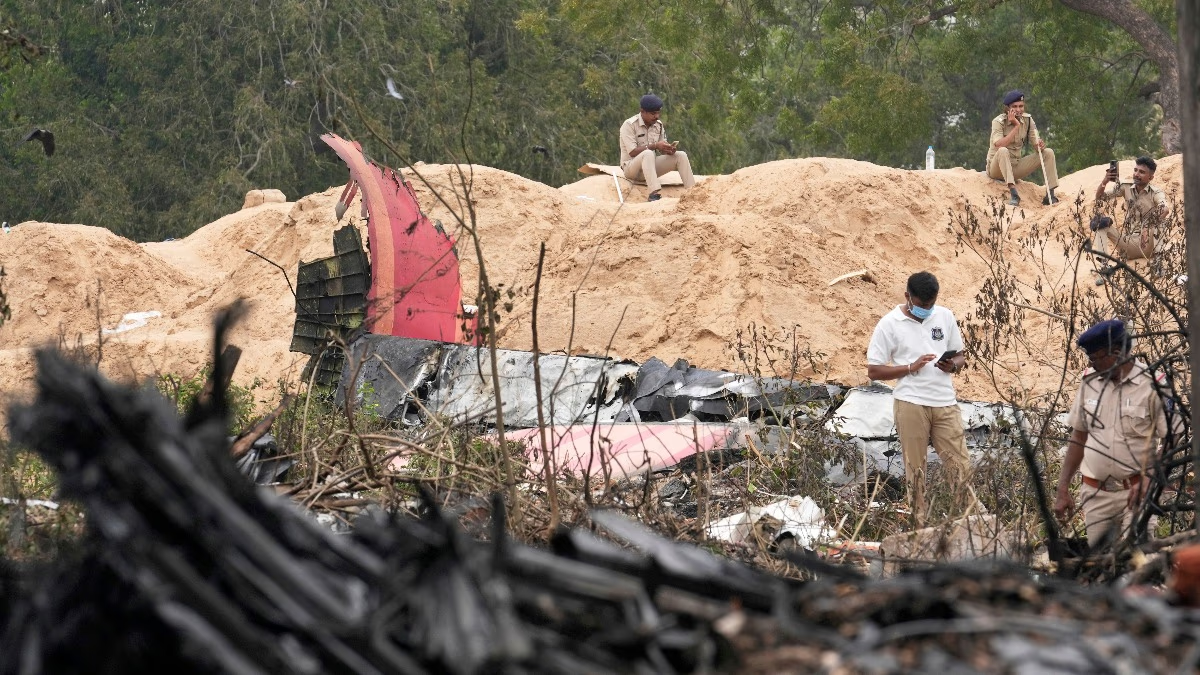Saturday marked the second consecutive day of missile and drone attacks between Iran and Israel, inflicting severe damage on both countries and affecting peace, the economy, and movement across West Asia.
Iran incurred substantial losses to its civilian and military infrastructure, including nuclear facilities and underground ballistic missile sites. In contrast, Israel experienced lesser damage. The devastation by Iranian ballistic missiles in Tel Aviv was unprecedented, being witnessed for the first time in decades.
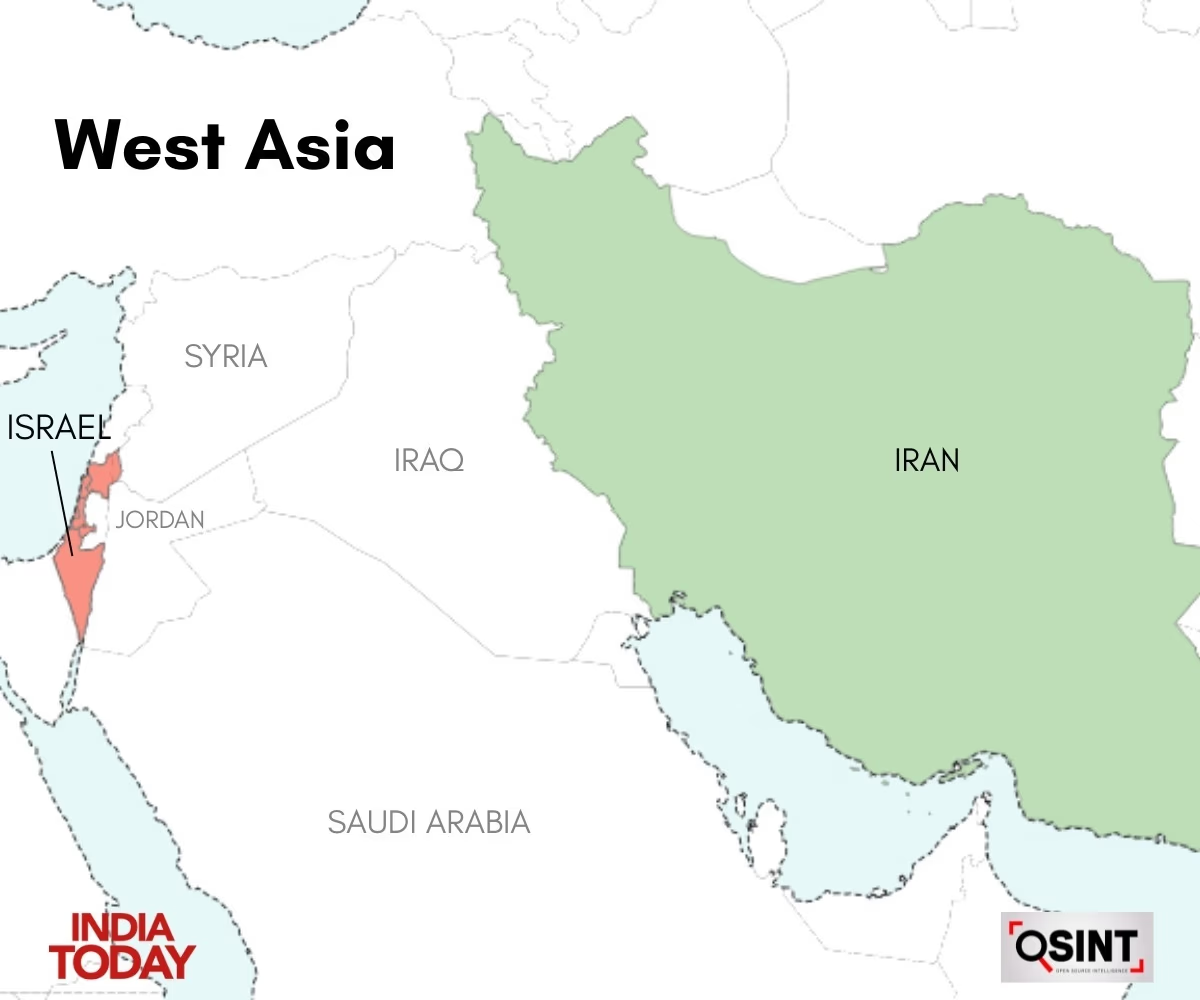
Source: aajtak
Which side is prevailing?
Clearly, it's Israel! The Israeli military carried out aggressive strikes on Tehran, eliminating top military leaders and dealing a severe blow to Iran’s military capabilities. Since Friday morning, Israeli fighter jets relentlessly bombarded Tehran and other cities without losing any aircraft or pilots. Israeli military spokesperson Brigadier General Efi Defrin mentioned these attacks involved 200 fighter jets targeting around 100 sites.
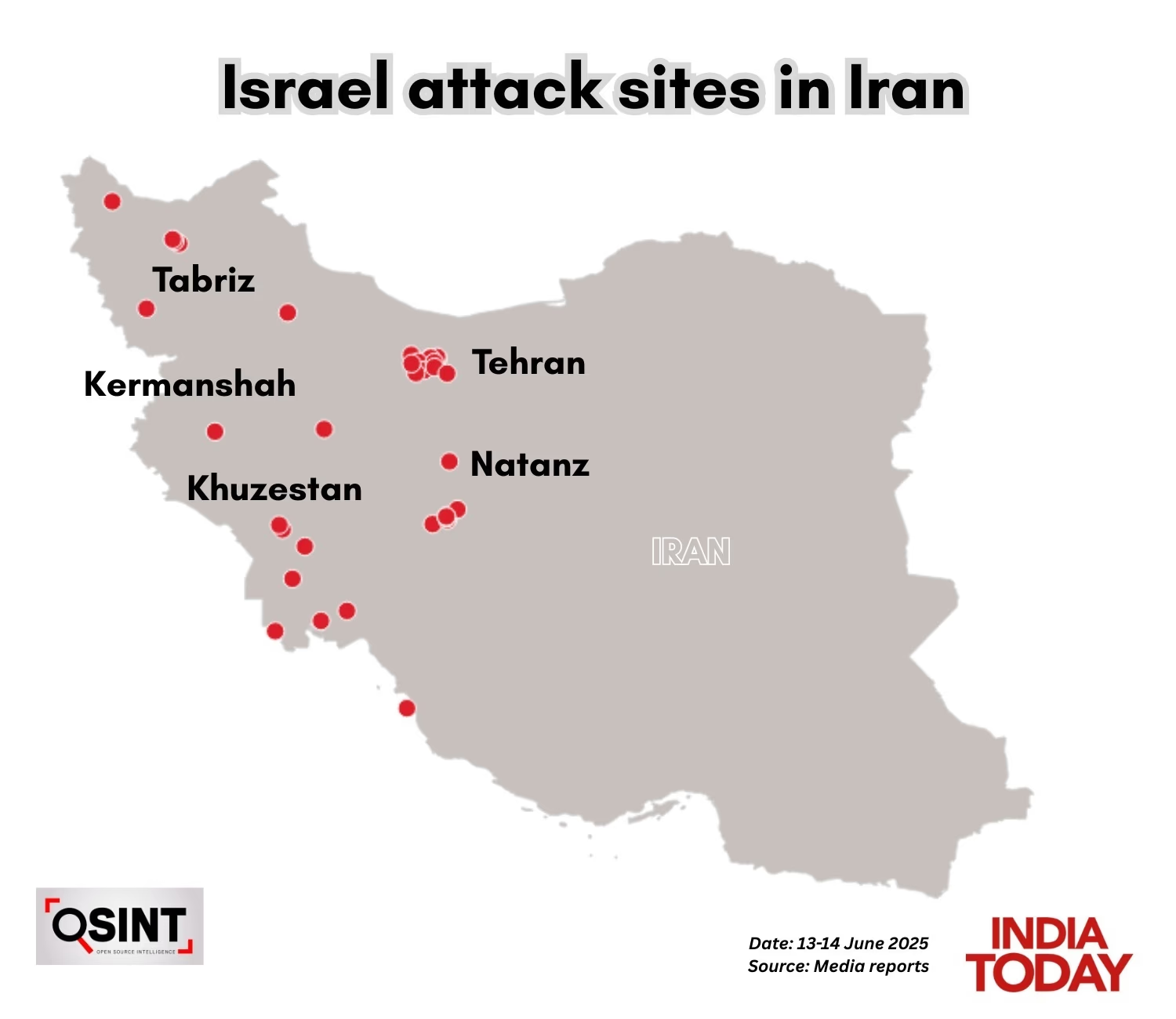
Source: aajtak
In retaliation, Iran launched several waves of over 100 drones and ballistic missiles towards Israel, predominantly targeting Central Israel. Israeli authorities claimed that most drones were intercepted before they could cross into Israeli airspace.
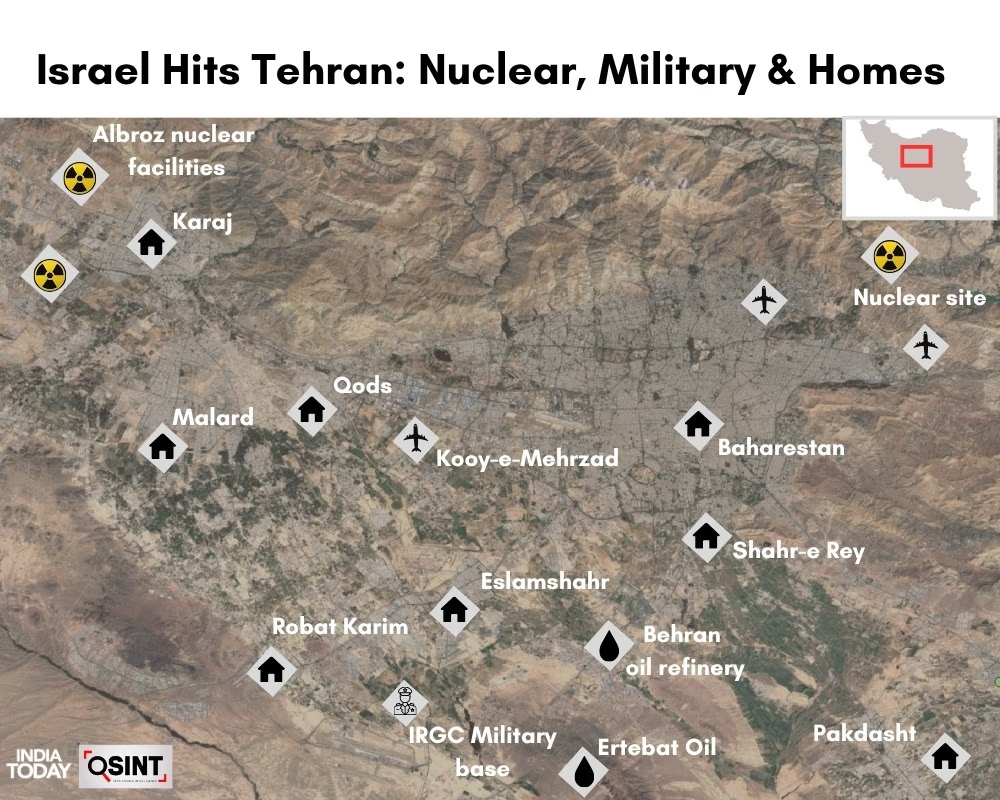
Source: aajtak
Israel's robust air defense systems successfully intercepted most ballistic missiles, but some managed to land, causing damage to residential buildings and offices. Iran’s primary target was reportedly the Israeli military headquarters 'Kiryat' in Tel Aviv, as reported by Fox News.
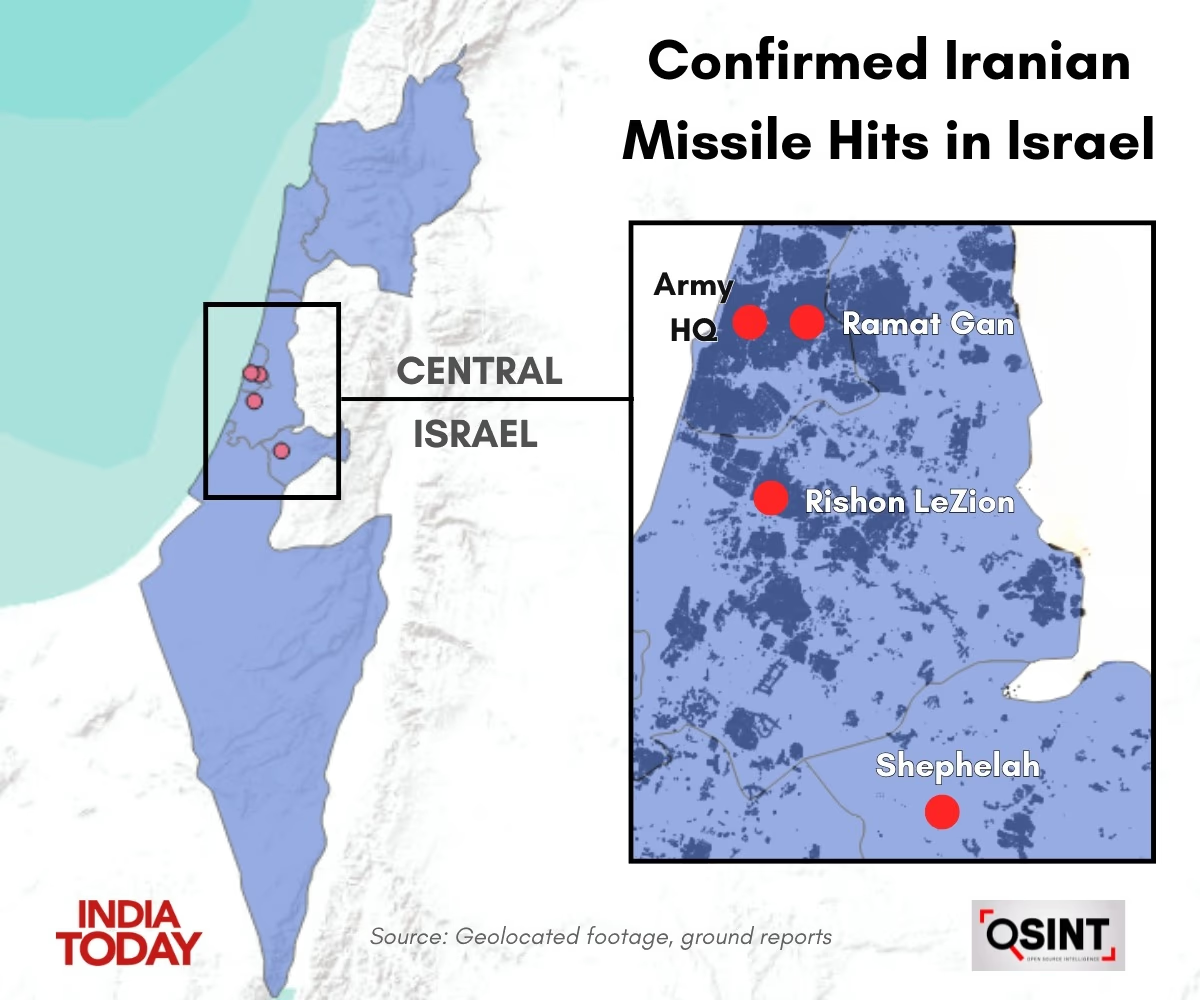
Source: aajtak
According to local media reports, at least three Israeli civilians were killed and dozens injured in the overnight missile strikes on Saturday. Central Israel's Ramat Gan and Rishon Lezion areas were hit hardest.
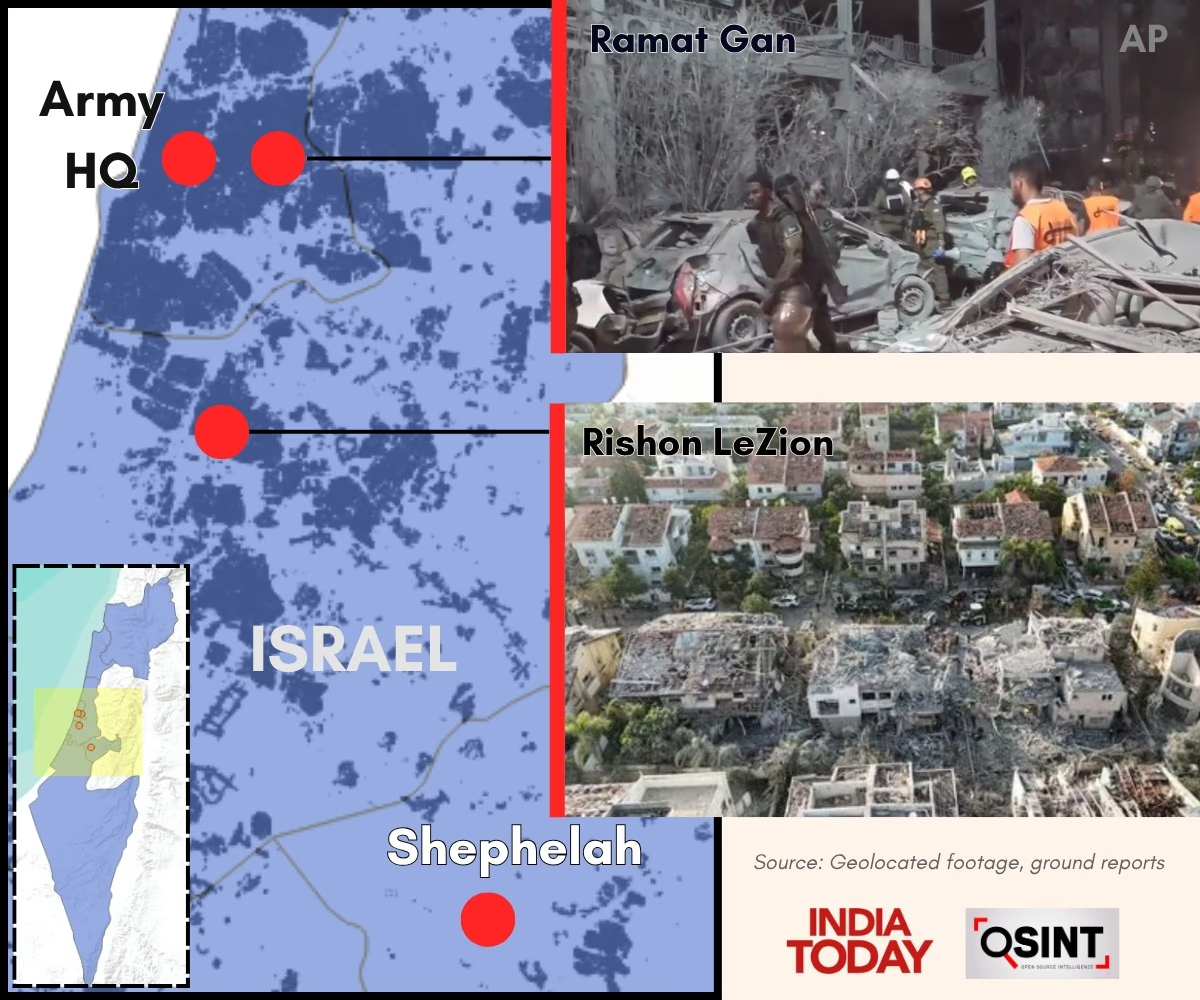
Source: aajtak
Additionally, Israel's secret service, Mossad, conducted a covert sabotage operation inside Iran using assembled drones. Meanwhile, Israeli attacks resulted in the deaths of at least seven top Iranian military officials, including the head of the powerful Islamic Revolutionary Guard Corps (IRGC), Army Chief, the leader of the Khatam al-Anbiya Headquarters, and the commander of the Quds Force. These commanders were killed in precise attacks while they were asleep.
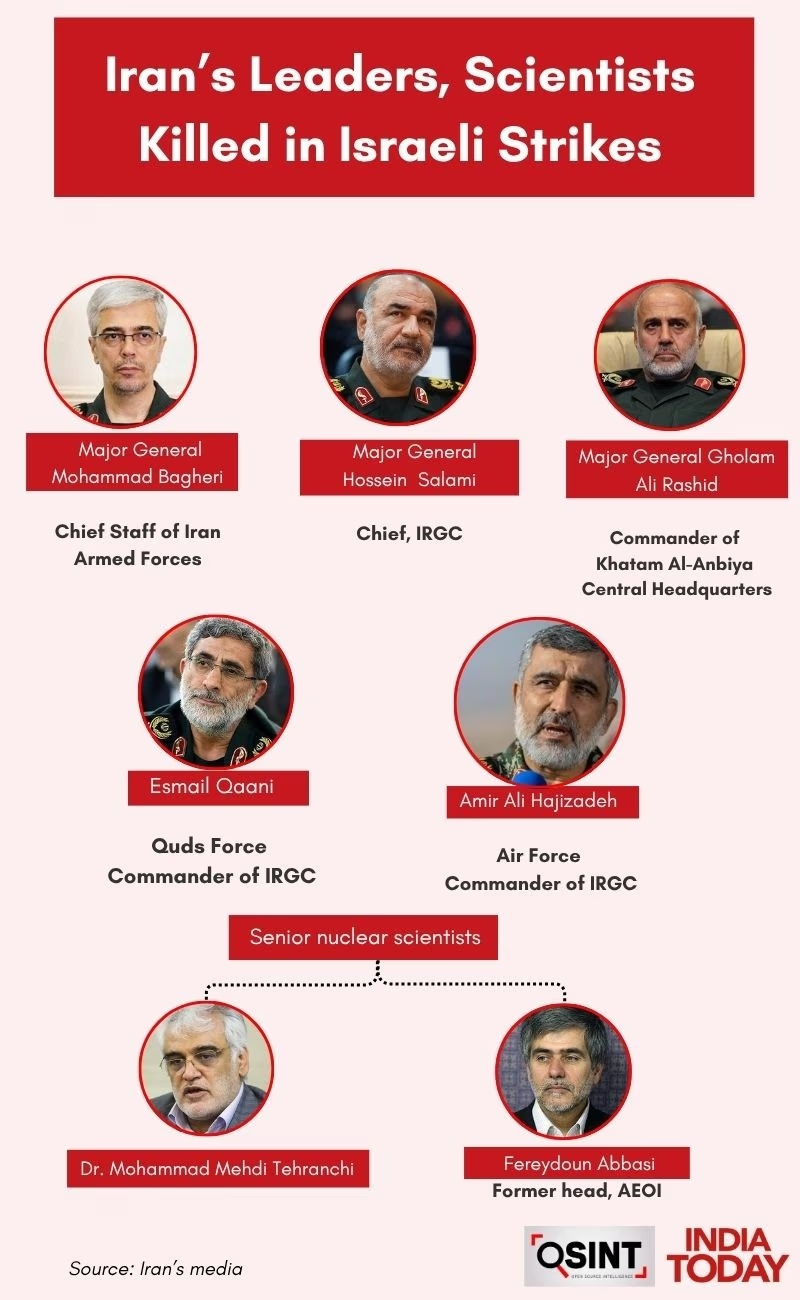
Source: aajtak
An Iranian diplomat stated that over 80 Iranian civilians were killed, and around 300 were injured in the Israeli attacks. Satellite images reveal damage to Iran's underground missile sites in southern Kermanshah and western Tabriz.
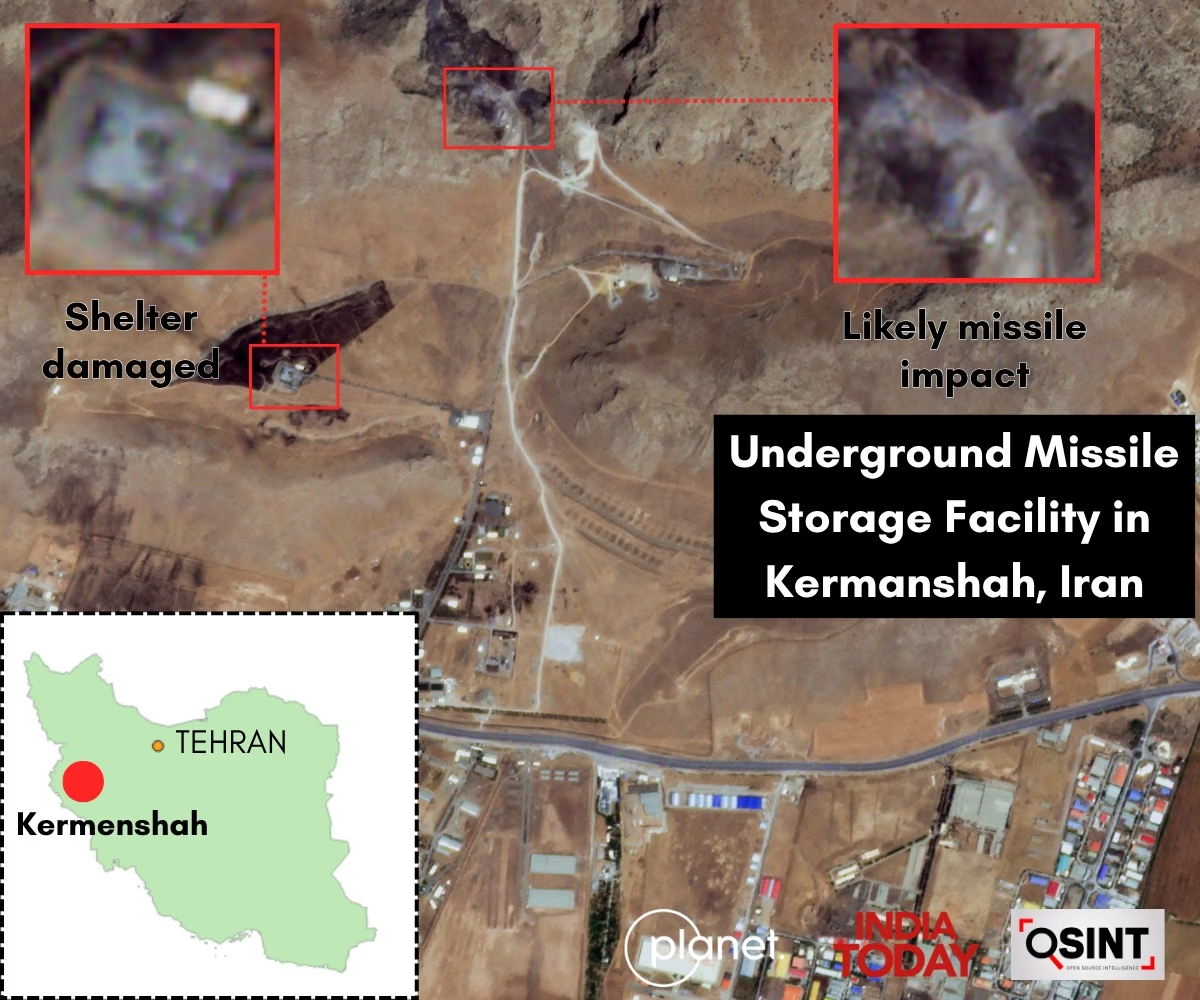
Source: aajtak
Iran's three major nuclear sites - Natanz, Fordow, and Isfahan - have been damaged by the Israeli attacks. In testimony at the UN, the IAEA stated that the top section of the Natanz plant, where Iran was enriching 60% uranium, is 'destroyed,' and centrifuges might also be damaged. Israel also claims to have killed nine Iranian nuclear scientists.
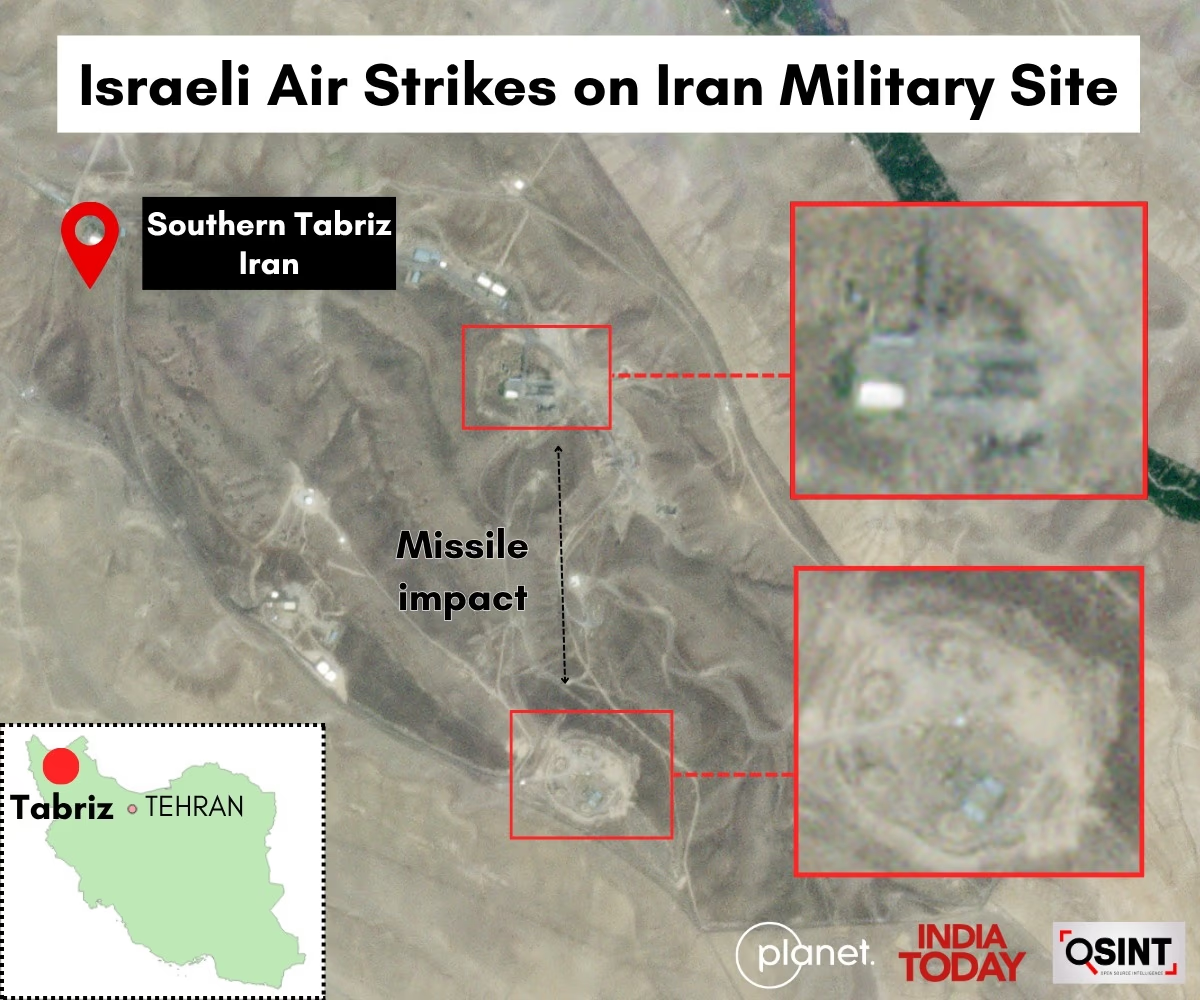
Source: aajtak
Meanwhile, flight monitoring data shows multiple unscheduled flights leaving Tehran for unknown destinations, indicating either the evacuation of aircraft to safer locations or the departure of VVIPs from the capital.
Tensions might escalate further
The US has urged Iran not to target its soldiers and personnel, claiming it is not directly involved in the conflict, yet Iran dismissed these claims, warning that it may attack US bases in West Asia, basing its argument on Washington's military aid and political support.
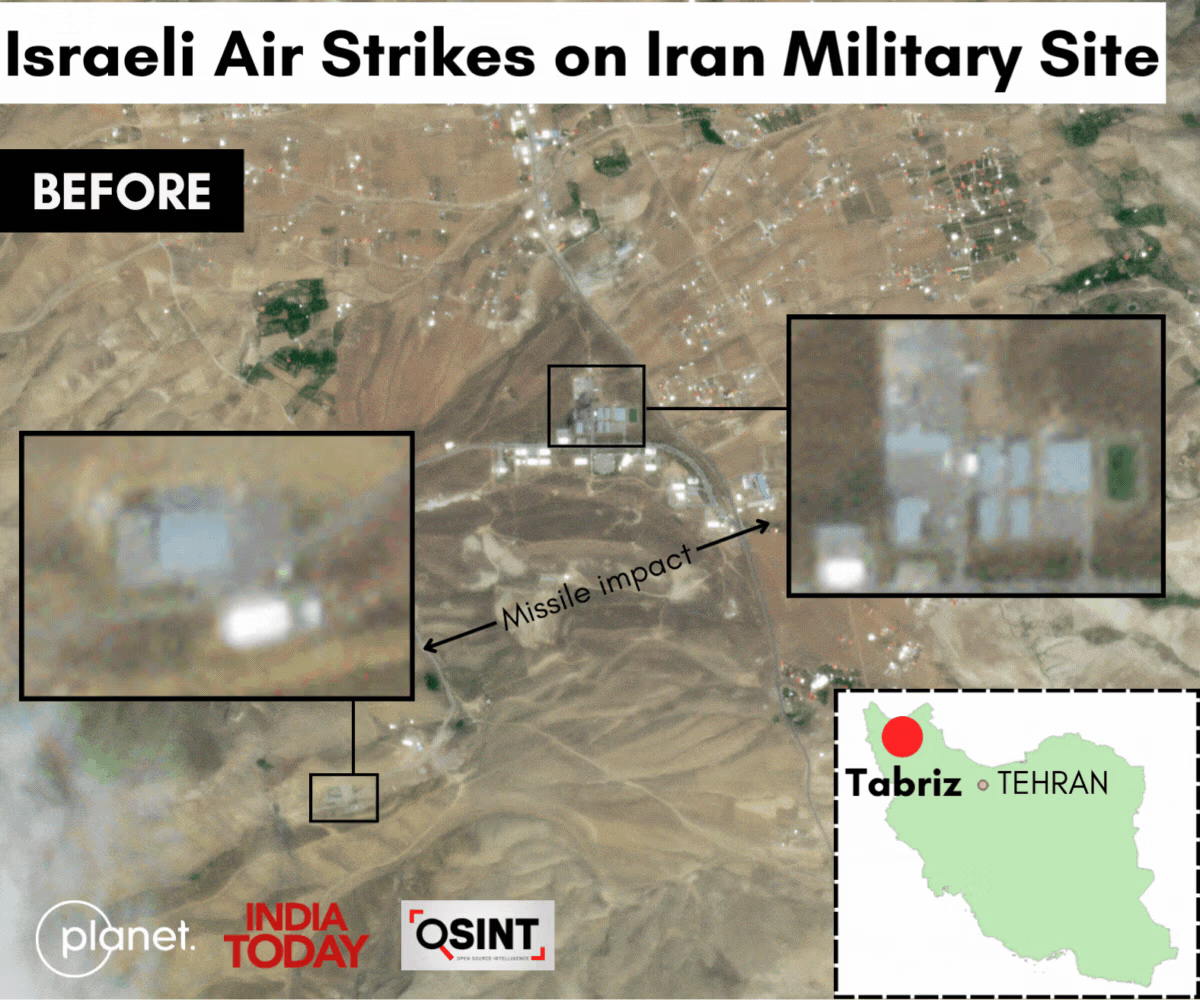
Source: aajtak
Meanwhile, US media reported that American forces assisted Israel in intercepting Iranian missiles. If Iran targets American military assets, the situation could become more severe. The US has already evacuated non-essential staff and military families from several embassies and has deployed its warships to the region.
Why did Israel strike Iran?
Israel states that Tehran is on the brink of achieving the capability to produce nuclear weapons, posing a threat to its existence. Meanwhile, Iran and its allied organizations often express intentions to completely eradicate Israel. The US and other Western countries also oppose Iran's nuclear program. Recently, US President Donald Trump stated, "Iran cannot get a nuclear bomb."
In 2015, Iran struck a deal with the US and several other Western nations, agreeing to shut down some of its nuclear sites in exchange for relief from sanctions, but Trump withdrew the US from this deal after three years, citing its failure to curb Iran’s missile program and regional influence.
